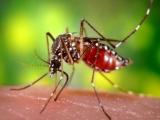The US Food and Drug Administration (FDA) yesterday said people who have traveled to areas of active Zika transmission or who have other exposure risks should wait to donate blood.
The FDA said in a news release that there have been no results of Zika virus entering the US blood supply, but the risk is real, given how Zika and other flaviviruses spread. The agency also cited earlier reports of transfusion-associated infections in Brazil, the outbreak's epicenter.
Anticipating the possible risk to the nation's blood supply, the American Red Cross earlier this month announced changes to its blood donor protocols.
Guidance includes active transmission areas
The FDA's Zika guidance takes into account that about four out of five people don't know they're infected.
For areas with no local transmission, it recommends donors who are at risk of Zika infection be deferred for 4 weeks. People considered at risk include those who had symptoms consistent with Zika virus infection within the past 4 weeks, had sexual contact with someone who visited or lived in an area of local spread during the past 3 months, and anyone who traveled in the past 4 weeks to an area where the virus is circulating.
In areas with active Zika transmission, such as Puerto Rico and the US Virgin Islands, the FDA urges authorities to obtain whole blood and blood components from parts of the United States with no local transmission. It added that blood facilities can continue collecting and preparing platelets and plasma if they use an FDA-approved pathogen-reduction device.
FDA's guidance also recommends that blood centers update their donor education materials to include information about Zika infection symptoms and ask potentially exposed donors to defer giving blood.
Peter Marks, MD, PhD, who directs the FDA's Center for Biologics Evaluation, said in the FDA release, "Based on the best available evidence, we believe the new recommendations will help reduce the risk of collecting blood and blood components from donors who may be infected with the Zika virus."
Next steps to curb threat
The FDA also said it is working on guidance on Zika-linked donor deferral measures for human cells, tissues, and cellular and tissue-based products, in light of recent reports of sexual transmission of the virus.
Like their blood center counterparts, some sperm banks have already tightened up their donor protocols. For example, Phoenix-based Seattle Sperm Bank (SSB), said today that it has taken steps to prevent samples infected with Zika virus from getting into the donor supply.
The SSB said it beefed up its screening procedures earlier this month when a sexual transmission case was reported in Texas. In a press release it said donors who traveled to or had sex with someone who traveled to Zika-affected countries will be deferred for 1 month.
The FDA added that it is also prioritizing the development of blood screening and diagnostic tests that could help identify the virus and gauge the safety of new drugs and vaccines. It said it will also be reviewing technology to help tamp down populations of mosquitoes that can spread Zika virus.
See also:
Feb 16 FDA press release
Feb 3 CIDRAP News story "Zika outbreak alters Red Cross blood donor protocol"
Feb 4 CIDRAP News story "Brazil confirms blood-transfusion Zika; PAHO calls for global support"
Feb 17 SSB press release





















